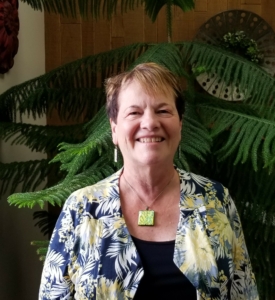Community Advocate Spotlight: Beverly Collins, Laona State Bank

Beverly Collins
The following is a brief interview between WBA President and CEO Rose Oswald Poels and Laona State Bank President Beverly Collins.
Rose: How did you first get into the banking industry?
Beverly: When I first got into banking, I did not think that it would be my career. Banking started off as short-term employment, and after 47 years, I am pleased to say that it has become a very satisfying career.
Whenever someone in the bank went on vacation, I offered to learn their position and cover for them. With today’s larger banks, much of the work is now centralized and leaves fewer opportunities locally for individual growth. I am grateful that I was able to learn banking by working in all the positions from the ground up. Through the years, I have also had wonderful mentors who have not only taught me about banking, but also the importance of compassion and caring when working with the customer.
What is your favorite aspect of your role at your bank?
I enjoy being in a community bank where I am able to take care of the whole customer relationship. When I was employed at a larger bank, we would have to refer the customer to a different department for their commercial needs, personal needs, mortgage, etc. Additionally, I am able to work with a local Board of Directors who understand the dynamics of the communities we serve. A community bank is so vital to the financial health of the areas they serve. Our customers do not bank with just the name on the building, it is the people within who are their bank. Our customers are friends and family.
What do you wish the general public understood about the banking industry?
There is a difference between community banks, larger banks, and credit unions. Not all banks are the same, and credit unions are not banks. With a vested interest in the success of local individuals and businesses, our success — as a community bank — is wholly dependent on the success of the people we serve.
As we see larger banks pulling out of the smaller communities, the value of the local community bank has been underscored. I feel that, at the community bank level, we still consider the character in our underwriting to be one of the strongest factors; we know our customers and understand that they can go through tough times; we are able to work with our customers to overcome the obstacles that they have encountered.
I also appreciate that the banking industry has expansive opportunities for training. The Wisconsin Bankers Association (WBA) and the Independent Community Bankers of America (ICBA) are a few examples of where a bank can access resources and education. One can start at an entry-level position and continue to advance within their organization with the training that is provided.
Where do you believe the industry’s greatest challenges are in the next three to five years?
Customers have become more complex, and they demand tools that simplify their banking process. In order to meet these needs and stay competitive, a bank must invest in costly, constantly evolving technology.
Banks, like other industries, also struggle to find employees. With a number of frustrating and expensive rules and regulations to stay in compliance with, community banks must draw upon the strengths of their team. In the larger bank environment, there are whole departments that can be utilized as resources whereas, in a community bank, the compliance department may be only one person.
Of course, another challenge is competing with credit unions. The average consumer is not aware of the differences in our tax structure and reserve requirements.
Please describe your current role at your bank and share with us one of your more rewarding experiences.
Some of the most rewarding experiences in my career have been when I was able to work with start-up businesses. It is their dream, but we are the partner to help make it a reality. I enjoy watching the business grow from the ground up and achieve success.
I have also had the opportunity to work with many wonderful people through the years. They have not only been fellow employees, but also became friends. When I changed banks, the greatest compliment I received was when my customers brought their business over to the bank I was now employed with. This clearly demonstrates that people choose to bank with people, not just an institution. Sometimes we think that we need to spend dollars on this training or that training for customer service. At the end of the day, it is basic: take care of your customer.








